‘The Hobbit’ Story Group 1: An Unexpected Party
Move over young wizarding students, talking majestic messianic lions, sparkling heartthrob vampires, and even archery-skilled dystopian gladiators and rebels. The hobbits are back.
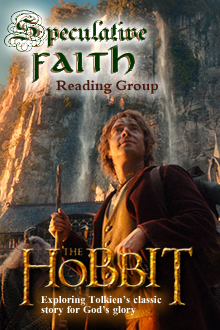 This week the classic fantasy The Hobbit by J.R.R. Tolkien, British professor of languages and literature, turns exactly 75 years old. It was published Sept. 21, 1937, a day before what would turn out to be the in-story birthday of two famous hobbits, Bilbo Baggins and his nephew, Frodo. That has led this week to become an even more-significant “Hobbit Week” than usual, with Tolkien fans enjoying their favorite fantasy, cooking hobbit-y food, and (if my own impulses are any indication!) re-viewing multiple times the second trailer for the forthcoming film trilogy, a prequel to the 2001 – 2003 epic The Lord of the Rings.
This week the classic fantasy The Hobbit by J.R.R. Tolkien, British professor of languages and literature, turns exactly 75 years old. It was published Sept. 21, 1937, a day before what would turn out to be the in-story birthday of two famous hobbits, Bilbo Baggins and his nephew, Frodo. That has led this week to become an even more-significant “Hobbit Week” than usual, with Tolkien fans enjoying their favorite fantasy, cooking hobbit-y food, and (if my own impulses are any indication!) re-viewing multiple times the second trailer for the forthcoming film trilogy, a prequel to the 2001 – 2003 epic The Lord of the Rings.
As faithful as The Lord of the Rings was to the source (with exceptions, perhaps most notably the change in the character of Faramir), readers are both excited and nervous about the first Hobbit film.
The new series will adapt not only The Hobbit, but material from The Lord of the Rings appendices. It will also fill in with new concepts — such as the wizard Radagast riding a sled pulled by rabbits, or an elf-maiden named Tauriel assisting Bilbo in his rescue of the captive Dwarves. However, each film should follow the original story, perhaps starting more like a fairy tale and shifting tone (as the book arguably does) to be more like The Lord of the Rings near the end. The films will be titled The Hobbit: An Unexpected Journey, to be released Friday, Dec. 14; The Hobbit: The Desolation of Smaug, on Friday, Dec. 13, 2013; and The Hobbit: There and Back Again, breaking the year-end rhythm by releasing July 18, 2014.
Whether The Hobbit films are absolute wins, woeful disasters, or (more likely) wonderful with a few troublesome spots, you can’t go wrong reading the book again.
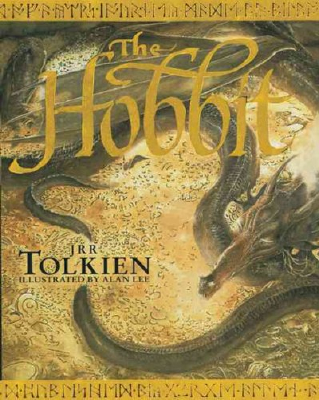
The Hobbit, published Sept. 21, 1937, is (currently) the oldest Christian fantasy listed in the Speculative Faith Library.
Tolkien likely began this story much like he wrote his other short stories, such as Farmer Giles of Ham and Leaf By Niggle — that is, independent of his massive, years-long effort to form a new mythology in another world to support his invented languages, such as Elvish. Only later did Tolkien discover that hobbits, the wizard Gandalf, and the dwarves’ quest to fight the dragon Smaug and reclaim their homeland fit perfectly with his existing legends.
Therefore, it would be a mistake to conclude that The Lord of the Rings is epic and excellent fantasy, while The Hobbit is only for children. It would also be a mistake to conclude that The Hobbit, unlike The Lord of the Rings, is somehow not as “spiritual” as the more-epic tale that includes strong good-vs.-evil themes, messianic motifs, and self-sacrifice.
Rather, The Hobbit, as a literary masterpiece that began all modern fantasy explorations, is worthy of Christians’ respect and exploration, and to be experienced as worship of our ultimate Author. Its truths and beauties reflect those of God, His world, and His people.
Of course, one great way to explore The Hobbit is by reading it yourself. Yet what do we know Biblically about worship? It is best done together, in the context of a local church. Verses such as Col. 3:16 specifically reference worshiping together in the forms of “psalms and hymns and spiritual songs,” yet one verse later we read, “whatever you do, in word or deed, do everything in the name of the Lord Jesus, giving thanks to God the Father through him” (Col. 3:17). This includes story-enjoyment, for all reading is worship. So, another great way to enjoy and worship with The Hobbit may well be reading it with other believers.
Last summer I was blessed to host a reading group at my church for C.S. Lewis’s The Lion, the Witch and the Wardrobe. Now we are doing the same for The Hobbit. And we would love for you to join us on this quest, to read and discuss “Christianly” about one chapter a week.
At this pace, following with study notes posted weekly on Speculative Faith, we will have easily reviewed the book by the time the first film releases on Dec. 14.
Comfort in a cozy hobbit-hole has its place. Yet so does coming on this adventure with us!
Chapter 1: An Unexpected Party
- What sort of story is this? Our last story, The Lion, the Witch and the Wardrobe, was a story much like a fairy tale, though extended with more characters. (C. S. Lewis wrote it at first based on images, and then as a “supposal” of Christ working in a fantasy world.) Is The Hobbit a fairy tale? A novel? Do you think it’s intended for children or adults?
- Read the “Tolkien’s Work” section, starting page 4 of War of the Fantasy Worlds: C.S. Lewis and J.R.R. Tolkien on Art and Imagination, on why he wrote The Hobbit.
- How have you thought about The Hobbit? Why should a Christian read it? Spoilers: unlike a story such as LWW, The Hobbit has no Christlike death or overt Gospel overtones! So how might a Christian enjoy this story to the glory of God?
- Read chapter 1, pages 1 to 13 (after Bilbo thinks he escaped adventures!).
- How about Mr. Baggins? After that first conversation with Gandalf, what do we know about this hobbit? What about Gandalf himself? How are they alike and different?
- What makes the idea and personality of a hobbit so appealing? How does Bilbo remind us of ourselves? (Hint: he likes his comfort, his routines, and traditions, and doesn’t like having such things interrupted!) How may we share his views toward adventure?
- The Hobbit, as with The Lord of the Rings, is filled with interjections for several songs and poems. Why do you think Tolkien included them? Do you enjoy them, or skip them?
- In this fantastic world, Tolkien uses humor to connect with our world. How does he do this? With so many different things, how does he make this world very much like ours? With that in mind, can we really call this “fantasy” when it reflects so much of reality?
- In one chapter, Tolkien introduces not only Bilbo, an entire culture of hobbits, the wizard Gandalf, but thirteen dwarves. Why so many dwarves? Do you notice anything different about them, or do they seem more like a crowd of “extras”? Which dwarves stand out to you? (Hint: what do you think of Thorin, the Very Important Dwarf?
- Read chapter 1, pages 15 to 17 (“… as fierce as a dragon in a pinch”).
- After the Dwarves’ song, how does Bilbo feel? If you read the song, how might it make you feel? How may this emotion honor God, and secondly, make us want to read more?
- What conflicting desires are in Bilbo? How may this reflect our own conflicting desires?
- One Dwarf takes central prominence. What do you think of Thorin Oakenshield?
- Read chapter 1, pages 17 (If you have ever seen a dragon in a pinch …) to 22 (“… am I going to come back alive?”).
- How is Bilbo so unlike the Dwarves? What do they think of him, and he of them?
- Does Gandalf say why he was so intent on choosing Bilbo for this quest?
- Later, Thorin tells more of the story of the Lonely Mountain and how Smaug the Dragon invaded the Dwarves’ home, stole their goods, and sent them fleeing. How may this help us understand why the Dwarves are going on this quest, even if we don’t know all yet?
- Read The Lord of the Rings: The Return of the King, Appendix A, section III, “Durin’s Folk,” pp. 1046 to 1048 (the account of Smaug invading Erebor, then Azog’s murder of the dwarf Thrór at the gate of Moria). Then read page 1051 (about Thrain’s capture and death, and Thorin’s reaction).
- Did you know of this material that provides more “backstory” for The Hobbit? Why do you think Tolkien wrote The Hobbit in a child-friendly way, yet LotR more for adults?
- While The Hobbit is written in a much simpler way, how does this additional writing of Tolkien’s (years after The Hobbit’s publication) help fill in the story? What do you think of Thorin now? How does this deepen his pain and his character? What does he want?

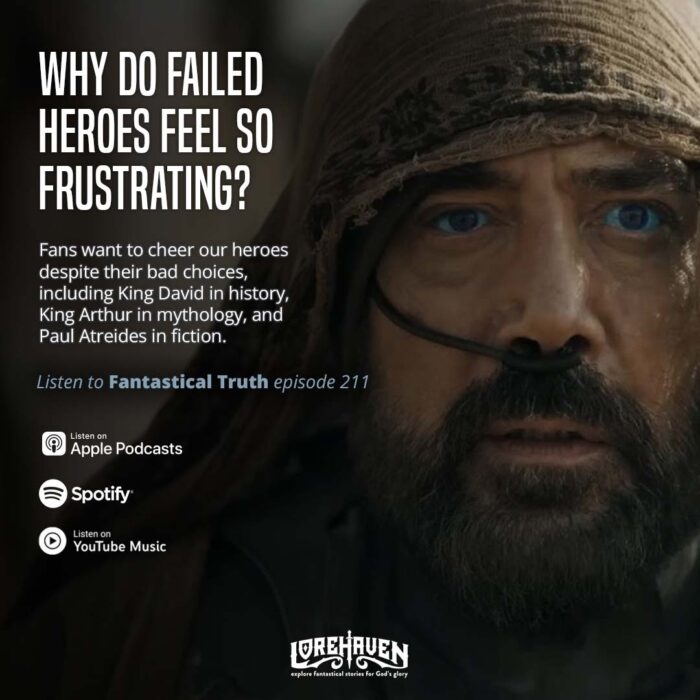

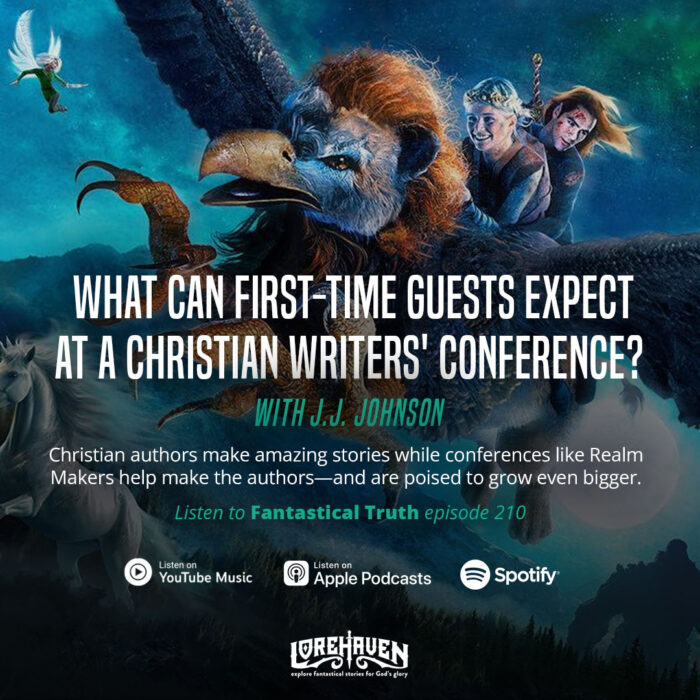






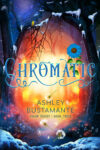



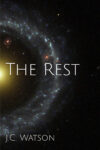






















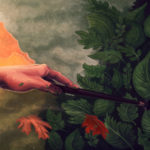
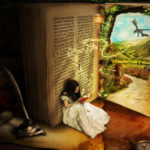


Astonishing, that Lewis once criticized Tolkien for writing too childlishly, and then Tolkien went on to be so critical of LWW. Grow up, Inklings!
There are many reasons why Christians should read it, not the least the simple reason that there is something universal and holy about the notion of answering the call to adventure.
I have a new theory about some of the themes in The Hobbit, based on my recent readings of Tolkien’s poem “Mythopoeia” and his essay “On Fairy Stories.” I think it has a lot to do with what Tolkien calls sub-creation — the making of myths and legends, or perhaps generically all sincere art of all kinds. I think the race of the Dwarves represent Tolkien’s theory of sub-creation. They are the ones who love to create, who love “beautiful things made by hands and by cunning and by magic…” (p. 15). The Dwarves’ crafted treasure — their sub-creations, representing their art and their stories — were stolen by the evil dragon Smaug.
I think Thorin’s description of dragons is very significant: “Indeed, they hardly know a good bit of work from a bad […] and they can’t make a thing for themselves, not even mend a little loose scale of their armor.” Dragons tell no tales and sing no songs. And those of us who already know the end of the story know what Smaug’s weakness is.
The poems and songs help make the world so much deeper and more real. I would never skip them; to do so would feel like sacrilege. Also, I think the songs contribute to the theme of sub-creation. The Dwarves’ song about the desolation of the Mountain is a beautiful tragedy in and of itself, a sub-creation lamenting the loss of the treasures that I’m viewing as analogous to our art and literature and music.
I glad for this reading group! I would greatly like to hear more thoughts about different things.